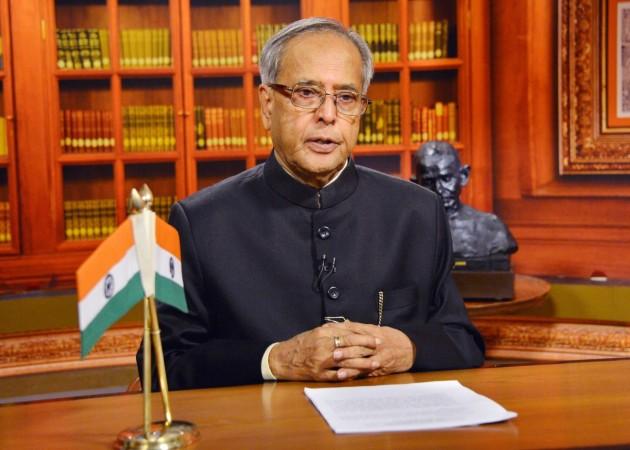
President Pranab Mukherjee on Thursday rebuked Members of Parliament in harsh terms over the continuous disruption of proceedings in both Houses, which has led to little-to-no business being conducted during the Winter session so far.
He said during an address on Thursday: "Parliamentary freedom should not be misused by causing disruptions. I have no intention of accusing any individual, but it has become a practice." As an example, he said: "The Women's Reservation Bill is pending for a long time in Parliament, and representation of women is abysmally low. It is totally unacceptable."
Severely rebuking the disrupting MPs, Mukherjee also said: "Majority [of MPs] never participate in disruptions. Only a minority come to the well, shout slogans, stop proceeding and create a situation. The chair has no option but to adjourn the House. This is totally unacceptable."
Why are MPs disrupting Parliament?
The disruptions — primarily by the Opposition MPs — have been over a range of issues, the biggest of them being the demonetisation move of Prime Minister Narendra Modi, who had made older Rs 500 and Rs 1,000 currency notes illegal tender from November 8 midnight, and set a fixed limit for their exchange for legal tender.
The move has caused quite an upheaval, leading to hardships from many quarters of the public, who have expressed their dissatisfaction with the move. To that end, Modi has assured them that the move will end the scourge of black money, dry up terror funds and make the process of counterfeiting the new currency notes even more difficult.
However, members from the Opposition parties — especially the Congress, which has been severely weakened in Parliament after winning only 44 seats in the Lok Sabha and having been driven out of power in several states — have been extremely vocal and physical in their protests, leading to Parliamentary work coming to a standstill.
The tactic was one the BJP had adopted during the last few sessions of the UPA-II regime. The idea is to stall the Parliamentary proceedings and later tell people that there is policy stagnation and the government in power is to blame for it.













